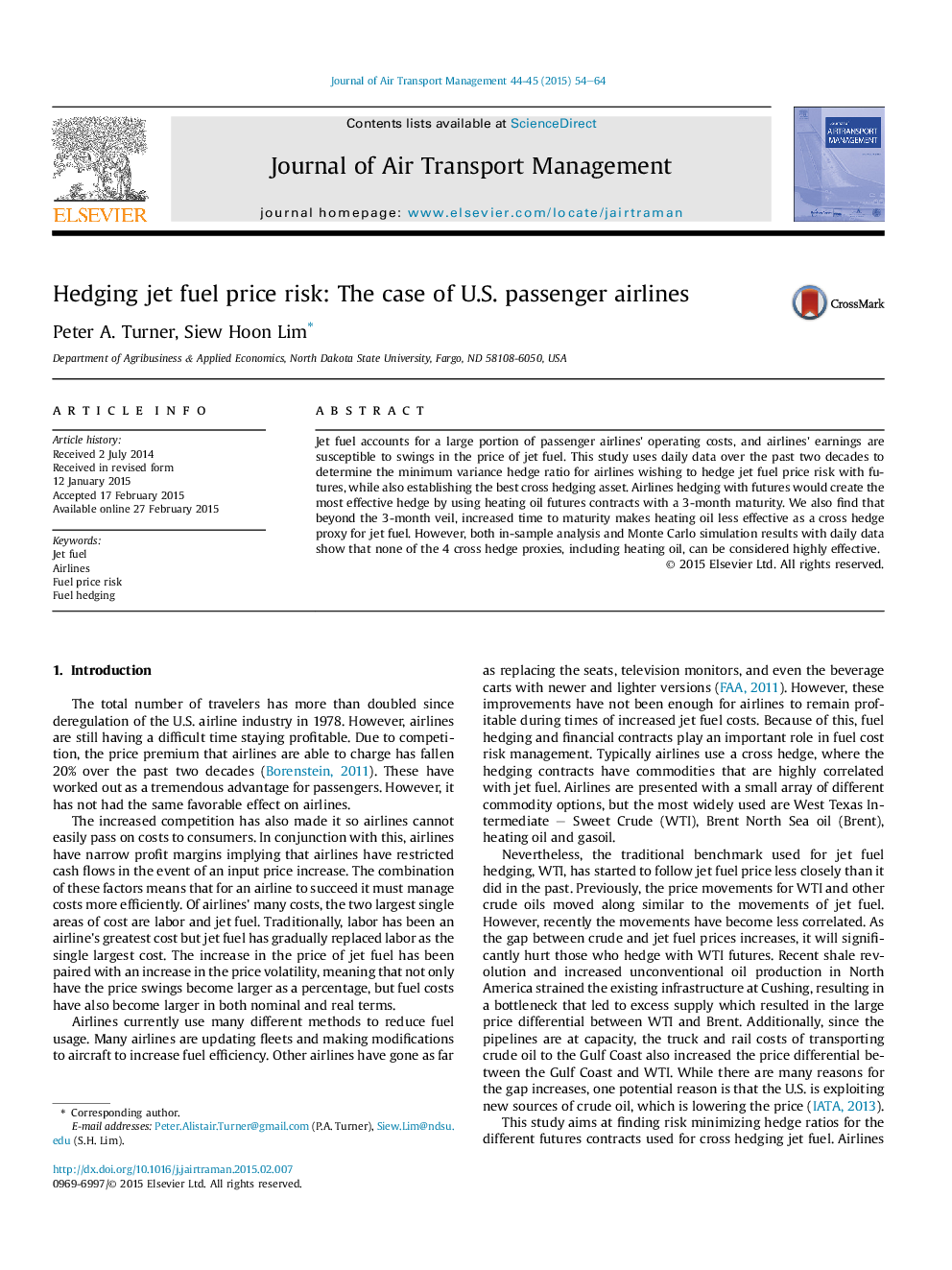| Article ID | Journal | Published Year | Pages | File Type |
|---|---|---|---|---|
| 1030733 | Journal of Air Transport Management | 2015 | 11 Pages |
•Jet fuel accounts for a large portion of passenger airlines' operating costs.•This study uses daily data over the past two decades to determine the optimal hedge ratio.•Hedging with futures would be more effective using heating oil contracts.•Increased time to maturity makes heating oil less effective as a cross hedge proxy for jet fuel.
Jet fuel accounts for a large portion of passenger airlines' operating costs, and airlines' earnings are susceptible to swings in the price of jet fuel. This study uses daily data over the past two decades to determine the minimum variance hedge ratio for airlines wishing to hedge jet fuel price risk with futures, while also establishing the best cross hedging asset. Airlines hedging with futures would create the most effective hedge by using heating oil futures contracts with a 3-month maturity. We also find that beyond the 3-month veil, increased time to maturity makes heating oil less effective as a cross hedge proxy for jet fuel. However, both in-sample analysis and Monte Carlo simulation results with daily data show that none of the 4 cross hedge proxies, including heating oil, can be considered highly effective.
